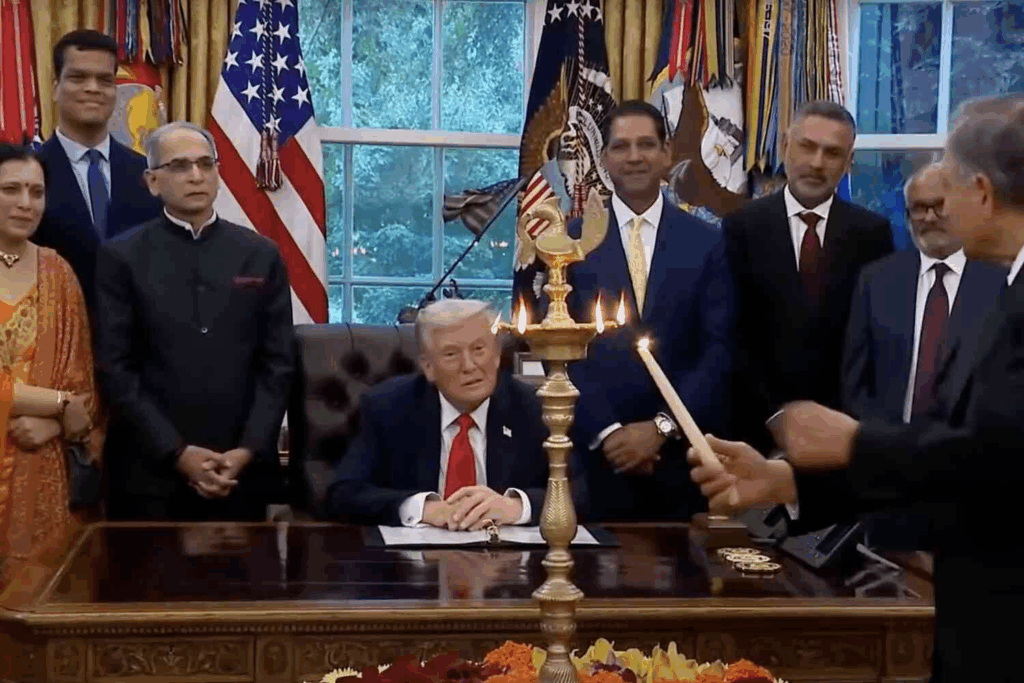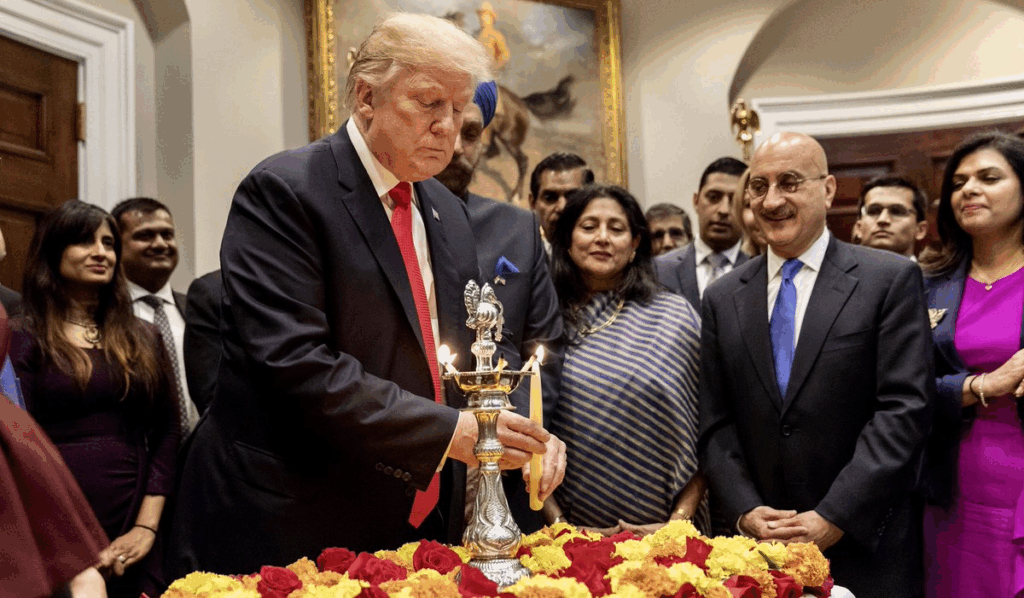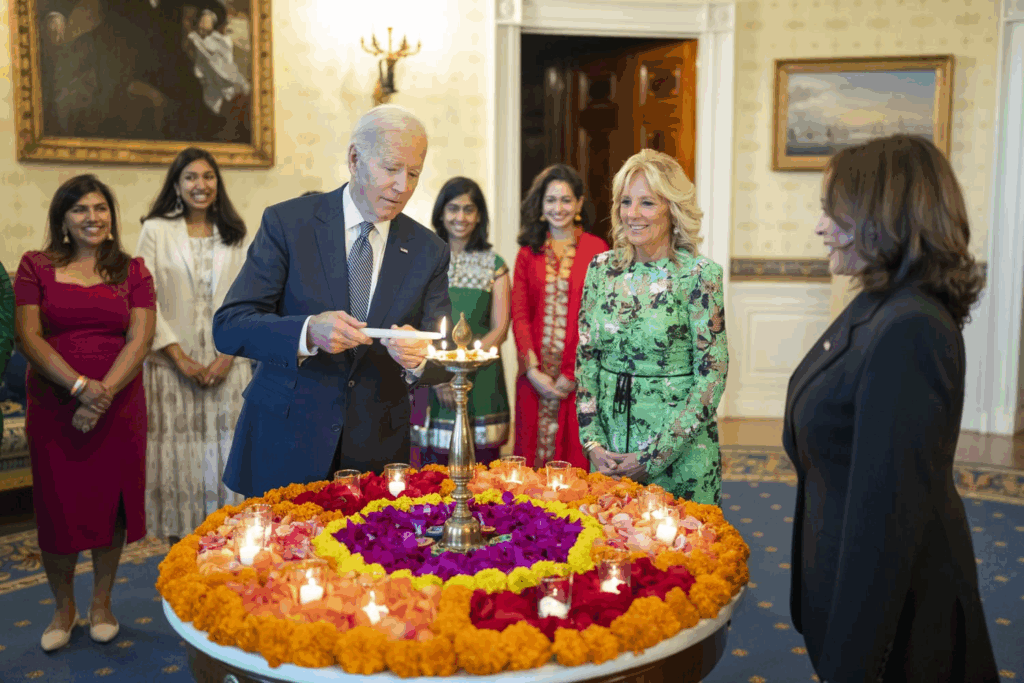SAT . “Pray that all the participants come to know the Light they are desperately trying to symbolize but do not yet see”

No sooner had the Diwali diya been lit in the Oval Office than came a full-throated condemnation of the “pagan demon-worship” that had overtaken the White House.
That moment, it seems, has become another test of how Christians engage a pluralistic culture:
- Some accused the administration of equating Hinduism with Christianity.
- Some saw it as a charitable act of goodwill towards citizens who do not share the country’s majority religion, but do contribute to its prosperity.
- Some decried the distasteful symbolism of lighting candles for a pagan tradition in the same rooms where presidents once prayed to the God of the Bible.
It’s understandable why many of us Christians feel uneasy when the government of our country celebrates, in any official capacity, a festival that honors false gods. In fact, I think any Christian that isn’t unsettled by public idolatry has lost the plot (Acts 17:16).

The Bible never treats idol worship as benign, or mere false religion. “They exchanged the truth about God for a lie,” Paul wrote in Romans 1:25, “and worshiped and served the creature rather than the Creator.” Idolatry is misplaced affection. It’s the human heart giving divine honor to what is not divine.
This is what happens every year when millions celebrate Diwali’s “festival of lights.” No matter how beautiful a cultural tradition it may be, it is a spiritual counterfeit, proclaiming the triumph of light over darkness, but substituting countless impotent gods for the one true Light of the World, Jesus Christ. The Bible connects this misplaced devotion and sacrifice to demons (Deuteronomy 32:16-17, Leviticus 17:7).
Anyone saved by God’s unfathomable grace cannot help but be troubled by that.

But it’s important that Christians recognize the New Testament never once calls believers to rage against idolaters. It repeatedly calls us to pray for them.
When the Apostle Paul wrote to Timothy, instructing believers to make “supplications, prayers, intercessions, and thanksgivings for all people – for kings and all who are in high positions,” he did so while Rome’s rulers sacrificed to Jupiter and Mars and demanded divine honors for themselves. Living under the authority of pagan rulers himself, Paul didn’t tell the church to fight them; he told them to intercede for them.
That’s a critical instruction for us. That while we may be irritated to see American leaders now celebrating Hindu deities, we are to follow the example set by the first-century church. Those early Christians prayed for leaders who worshiped gods made of stone, and who threw believers to lions.
We would be wise to view Vivek Ramaswamy, Kash Patel, Tulsi Gabbard – all prominent figures associated with Hindu worship – not so much enemies of Christ as potential heirs of His grace. If one encounter with Jesus turned Saul the persecutor into Paul the apostle, imagine what it would do for them. I tend to believe we’d be best at arranging that encounter not through scorn, sarcasm, or culture-war campaigns, but through fervent intercession, and enthusiastic petitions for the Spirit’s conviction.
As a Christian, I’m more persuaded to plead for idolaters than to police them.
It’s interesting that Diwali celebrates light’s victory over darkness. We Christians affirm the same longing, but we know the Light personally. His name is Jesus. The truest festival of lights happened outside Jerusalem when the sun darkened and the Light of the World gave Himself for sinners past, present, and future and triumphed over darkness once for all (John 1:4-5).
So, as the American government celebrates Diwali or other pagan rituals, may we Christians see it as an opportunity to passionately pray that all the participants come to know the Light they are desperately trying to symbolize but do not yet see (1 John 1:5).
The one light the world needs is not found in diyas and candles, but the Cross and the empty tomb.
P.S. Now check out our latest video 👇
Keep up with our latest videos — Subscribe to our YouTube channel!
Disclaimer: The opinions expressed in this article are those of the author and do not necessarily reflect the opinions of Not the Bee or any of its affiliates.


